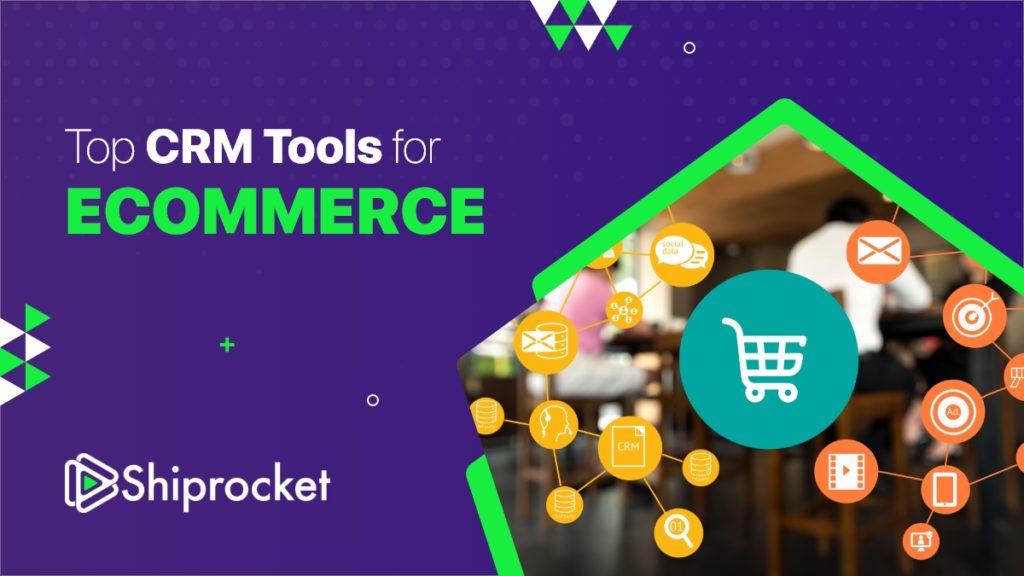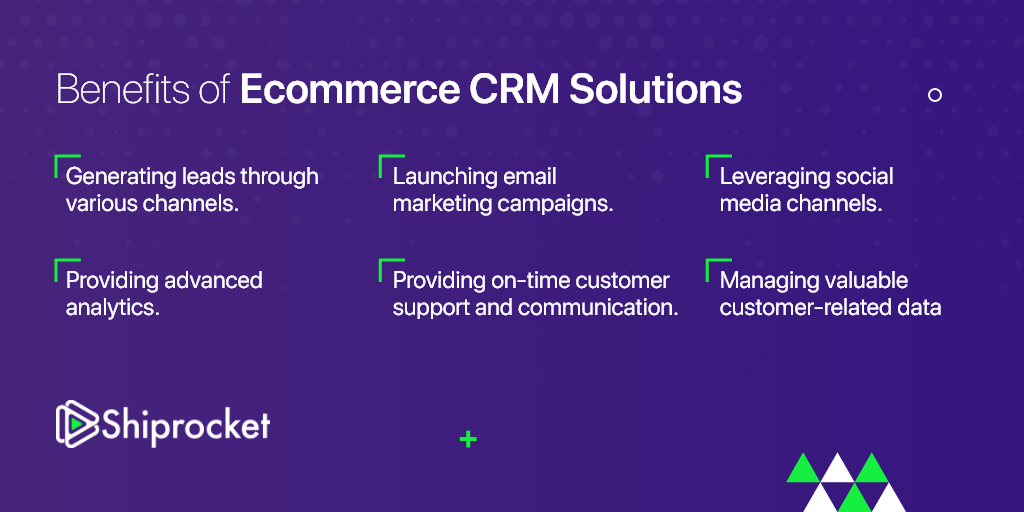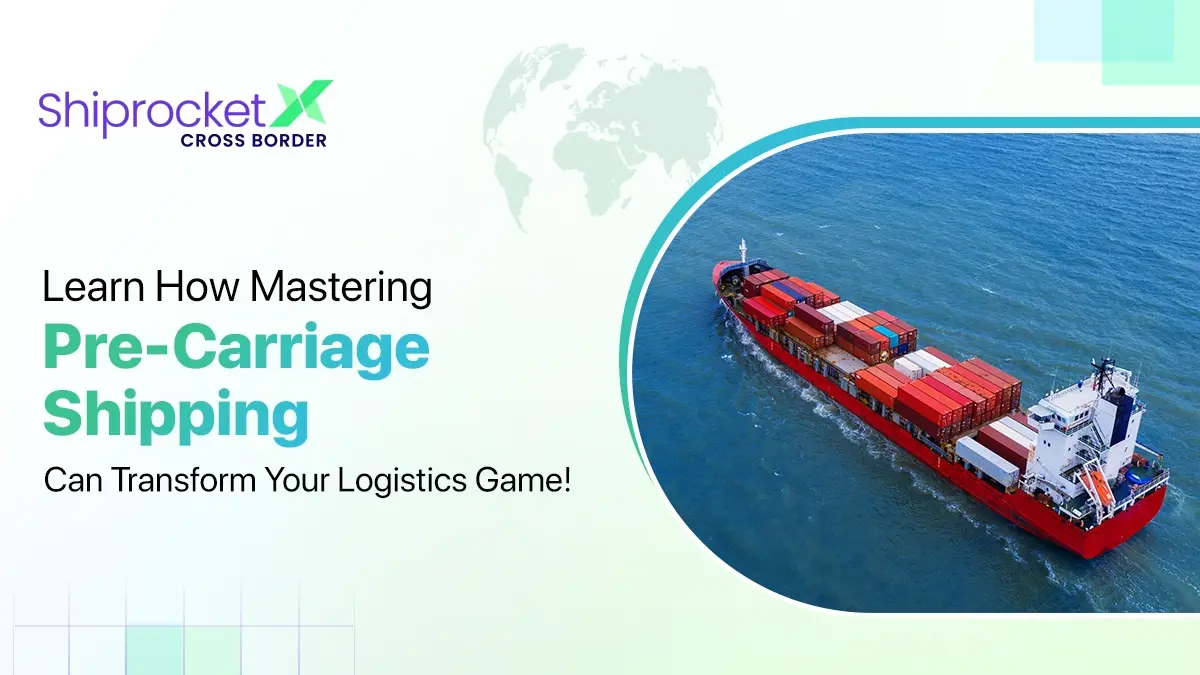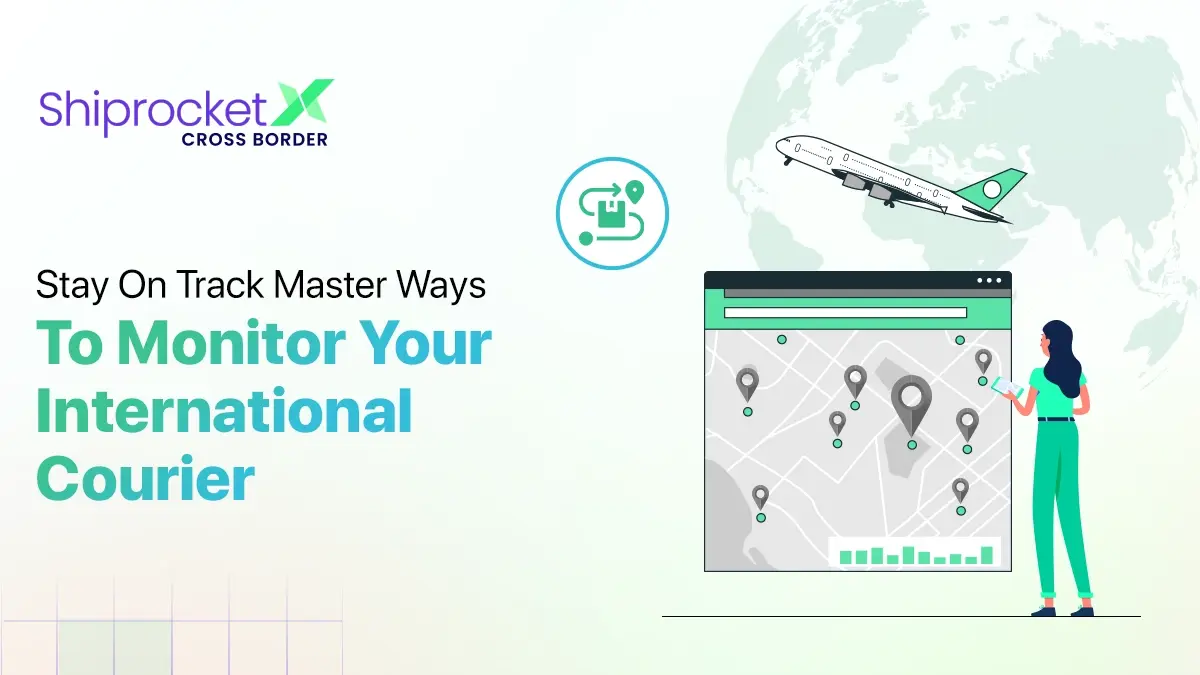10 Must-Have CRM Tools for eCommerce in 2025
Every business is about customers. A lot of effort is spent on attracting new customers and retaining existing ones.
The task of attracting new customers isn’t simple, on account of the fierce competition. However, there’s little doubt that the success of ecommerce companies depends on how well they interact with their customers.
Ecommerce businesses strive to reach out to their clients, learn their preferences, and determine their needs. That’s exactly what customer relationship management (CRM) systems help businesses do. This article will focus on effective CRM solutions for online stores and consider choosing the best one for your business.

What is a CRM for eCommerce?
Any system for managing a company’s interactions with clients can be called a CRM system. CRMs come in handy for a variety of organisations, from healthcare institutions to logistics companies. The functionality required of a CRM solution depends on what kind of company it’s meant for.
As far as ecommerce is concerned, a CRM solution for eCommerce must be tailored specifically to sales. What does that mean? An ecommerce CRM system must provide a business with as much customer-related information as possible: shopping habits, interests, shipping preferences, and more. An efficient CRM solution for online stores must give a clear customer journey map to come up with better marketing strategies and increase sales.
In simpler words, a CRM solution for ecommerce helps you gather, organise, store, and analyse information about your company’s customers. Let’s go over the significant advantages that CRM systems provide for online retailers.
Benefits of Ecommerce CRM Solutions
The revenue for the CRM software market is expected to reach USD 98.84 billion in 2025, representing a huge growth potential for the industry. The market is also expected to grow steadily with a CAGR of 10.17% between 2025 and 2029, reaching a market volume of USD 145.60 billion by 2029.

Here are some of the major reasons that have made CRM software one of the fastest-growing digital marketing software worldwide.
- Gathering Meaningful Customer Data
The best way to gather helpful information about customers is to require them to create accounts. When filling in a registration form, a person enters a lot of information that eCommerce websites can use (email address, phone number, and more). All this customer data is valuable to an eCommerce business, as it can be used to target each customer most efficiently. Almost 74% of businesses say CRM software gives them improved access to customer data, which helps them meet customers’ expectations in terms of product characteristics and prices.
- Re-Engaging Customers
Reasonable CRM solutions provide businesses with many tools for encouraging their customers to make extra purchases: personal coupon codes, newsletters, loyalty points, and notifications about discounts. Using these promotion tools is undoubtedly going to attract customers and increase sales.
For example, a customer from a particular buyer persona typically buys two related products together. You can recommend a bundle of those related products to another customer who tries to purchase one of those items from your online store. This is one of the most effective ways to increase the average order value.
- Providing Informative Analytics
Reports and analytics are crucial for planning and strategy building, so CRM solutions for online sales must provide plenty of analytical information. Providing several fundamental indicators won’t be sufficient to analyse your company’s performance. An effective CRM system must give deeper analytics about the most in-demand products and services, the most successful promotions, sales history, and more. The most advanced customer relationship management solutions even provide predictive analytics that facilitates predictive planning and sales forecasting. CRM combines inventory and sales forecast data so you can predict inventory needs in the future by analysing current order levels, historical inventory turnover, and expectations for future sales
- Improving Customer Support and Experience
In an eCommerce business, your company’s reputation is its supreme value. Customers mustn’t feel left behind. To keep them engaged, the best CRM solutions for online stores offer powerful toolkits for interacting with your customers. For example, chatbots allow you to improve customer service significantly.
When customers’ questions are answered quickly, customers will feel that your company cares about them. Therefore, brand awareness and visibility will grow, boosting your eCommerce website’s profits.
- Integrating Social Media
Social media plays an increasingly important role worldwide. According to figures provided by Statista, Social media usage is one of the most popular online activities.
Therefore, adding social media integration to a CRM system is crucial for any eCommerce company. Social media can bring thousands of new leads, helping your online store to generate more significant profits. Another critical aspect of social media is that customers are more likely to purchase after reading a positive review.
Top 10 Notable CRM Tools for Your eCommerce Business in 2025
1. Salesforce
This is the world’s largest CRM software provider: in its 2015 report, Gartner put Salesforce at the top of its list of the most prominent CRM vendors, with a market share of nearly 20%. Salesforce offers an efficient out-of-the-box CRM for ecommerce called SalesforceIQ, which is tailored for small- and medium-sized businesses. Plans start from $25/month per user, and several other options with more functionality are available. The SalesforceIQ ecommerce CRM offers several deployment options: cloud, SaaS, and web, plus support for mobile devices (iOS and Android native apps).
- Notable Features: If your business grows and SalesforceIQ no longer provides you with sufficient functionality, you can quickly upgrade to Salesforce’s Sales Cloud CRM with Einstein artificial intelligence. Einstein is a helpful tool that analyzes all the data stored in your CRM and provides sales representatives with extra opportunities, such as predictive intelligence, for example.
2. Zoho
Zoho offers an affordable and functional CRM for ecommerce companies that wish to build strong relationships with their customers. Even a standard plan (available at $15/month per user) offers sales forecasting, mass emailing, reports, and other essential features. Zoho supports the most convenient deployment options, such as cloud and mobile (iOS and Android).
- Notable Features: Starting from the Enterprise plan, the Zoho ecommerce CRM solution offers the benefits of Zoho’s cutting-edge Zia artificial intelligence. Zia uses state-of-the-art machine learning algorithms to boost your business.
3. Act!
The act is an affordable and helpful ecommerce customer relationship management solution for small businesses and individuals. The tool retains all of the essential customer-related data, allows you to group your clients in a database, launch targeted email marketing campaigns, and more. The starting plan, Act Premium, costs $25/month per user. Act Ecommerce CRM software offers the following deployment options: Windows, web, and mobile devices (iOS and Android).
- Notable Features: If you happen to go offline, the Act CRM will synchronise your recent changes as soon as you’re connected to the internet again. This way, you can work from literally anywhere.
4. Microsoft Dynamics
Microsoft Dynamics is a series of intelligent sales, customer service, finance, marketing, and more. The solution for sales (ecommerce website management falls into this category) is available from $95/user per month. This CRM solution for online stores allows you to leverage predictive intelligence to increase sales and target your customers with the most effective campaigns. This ecommerce CRM software can be installed on Windows computers and supports deployment to the cloud, SaaS, and web.
- Notable Features: The Microsoft Dynamics suite allows you to add different apps according to the needs of your business. Apps are available for collaboration, marketing, human resources, and more.
5. HubSpot
The good thing about HubSpot is that this CRM ecommerce software is free for individual sales representatives. HubSpot’s ecommerce CRM software is a simple way to keep all your customers in a single easy-to-access database. Also, the CRM automatically logs all interactions with customers. More functionality is available in HubSpot Sales Pro (starting from $50/month). Deployment options include cloud, SaaS, web, and mobile (iOS and Android).
- Notable Features: HubSpot allows you to turn repetitive emails into customisable templates. The CRM will show you which templates work and which don’t so that you can target your customers as efficiently as possible.
Moreover, starting from HubSpot Sales Pro, you can contact your leads by phone (2,000 min/month); all calls can be recorded so that you always know exactly what you discussed.
6. Nutshell
Nutshell is one of the best CRM software to grow your eCommerce business, offering features for sales, marketing, and engagement in a single platform. It can help your eCommerce business manage and organise customer interaction and sales processes, and build better relationships with your customers.
- Notable features: Nutshell allows you to automatically track the ROI of your marketing budget, manage your sales pipeline, gain access to insights into audience behaviour, automate sales and marketing processes, measure the results of your marketing strategy, and more. By personalising customer experiences, you can easily manage customer interactions and contact details. You can also use AI to identify areas to improve your campaigns, manage all marketing campaigns from a single location, and even track the entire life cycle of leads and your customers.
7. Pipedrive
Pipedrive is a sales-focused CRM software that can help your eCommerce business manage your sales pipeline, track customer interactions, and eventually, convert more leads. Pipedrive is best known for its ease of use and focus on sales process visualisation. This eCommerce CRM software is well-suited for businesses that rely on large sales teams to close deals, especially those that handle complex sales processes and involve multiple decision-makers.
- Notable features: Key features of Pipedrive include sales pipeline management, customer relationship management, task management, analytics and reporting, integrations, and more. These features and functionalities are designed to help you improve visibility into sales pipelines, enhance sales process management, increase sales productivity, and improve customer experiences.
8. Omnisend
Omnisend is an advanced marketing automation platform for eCommerce businesses. It primarily focuses on email and SMS marketing, offering tools for connecting and engaging with your customers. Omnisend enables you to create and send campaigns, automate workflows, and interact with your customers through various channels.
- Notable features: Some of the key features of this CRM tool for eCommerce business include email and SMS marketing, automation, customer segmentation, pop-ups and forms creation, analytics and reporting, drag and drop email builder, and more. Omnisend also integrates with popular eCommerce platforms and other marketing tools.
9. Freshsales Suite
Freshworks offers a CRM tool for eCommerce businesses known as Freshsales Suite. It is an AI-powered CRM tool with robust automation capabilities designed to help your business streamline sales processes and improve customer relationships. It’s easy to use and can help your sales team organise their tasks, sell smarter, close deals faster, and scale effortlessly.
- Notable features: Freshsales Suite comes with features like lead management, sales and marketing automation, AI-powered insights, personalised communication, sales pipeline management, cross-functional integration, and more. With Freshsales Suite, you can enjoy benefits like improved productivity, enhanced sales performance, scalability, and better customer relationships.
10. Copper
Copper is a CRM tool designed for your eCommerce business to help you focus on building and managing customer relationships effortlessly. It’s specifically beneficial for businesses that heavily rely on Google Workspace solutions like Gmail, Google Calendar, and other applications. This makes it easy to manage customer interactions and data within your existing workflow, enhancing productivity and ensuring sales optimisation. Copper streamlines interactions, managing contacts, and sales processes
- Notable features: Some notable features of Copper include integration with Google Workspace, sales pipeline visualisation, workflow automation, customisable reports, lead scoring email templates, automatic email sync, and more. With Copper, you also gain visibility into your team’s activities and sales methodologies. These features are designed to help you build and nurture customer relationships, instead of just managing transactions.
How to Choose the Right CRM Tool for Your eCommerce Business?
Here are some points to consider while choosing the right CRM tool for your eCommerce business:
- User-Friendly and Intuitive: Some CRM tools are more complex and have steeper learning curves than others. Choose CRM software that’s intuitive and comes with a user-friendly interface to speed up the implementation process. It is essential to make the time you and your team spend on learning it more pleasant.
- Essential Features: Different CRM software offers different features, and the right software will depend on your business needs and your business goals. Ensure you identify the goals for using CRM software, whether short-term, long-term, or targets that lead to your overall business goals. Next, make a wish list of all the features and functionalities that are most important to you. You can request free demos and trials to test different functionalities and whether they can help you achieve your business goals.
- Integrations and Channels: Look for an eCommerce CRM tool that allows you to extensively integrate with other software like your eCommerce website and other important software you use to carry out different business operations. This can include social media channels, email marketing tools, team communication platforms, field sales management tools, calendar management tools, etc.
- If you sell your products via multiple channels, including your eCommerce website, social media, online marketplace, or even a physical store, the right CRM software should enable you to automatically gather and synthesise data across all these channels.
- Pricing Structure: Before you choose a CRM tool for your eCommerce business, you must set a budget and conduct thorough market research, including reading user reviews and testimonials online. Next, you can shortlist some CRM vendors based on the features they offer, pricing structure, return on investment, and whether it fits your budget. Most vendors will charge you monthly, so make sure you consider your overall marketing budget and determine how much you can afford to spend.
- Switching to a different CRM tool later on would be challenging. Hence, it’s essential you take every aspect into account before making a financial decision.
- Customer Support: Getting familiar with using CRM software can be complicated and time-consuming, and you’ll need all the support you can get. Look for a vendor that offers extensive and reliable customer and technical support with quality onboarding resources. A high-quality, superior, and responsive customer support service can make all the difference, whether you go from taking a free trial to making the final decision to be on board.
Conclusion
Choosing the right CRM tool for your eCommerce business can significantly impact your customer relationships, sales, and overall business growth. The best tool for you is the one that fits your budget and your store’s needs. There’s a perfect solution available for you whether you are looking for AI-driven insights, automation, seamless integrations, or features to deliver personalised customer experiences. Choose an eCommerce CRM tool that can help you automate workflows, enhance personalisation, and improve customer retention. You can also prioritise features like data analytics, marketing automation, and omnichannel support to stay ahead of your competitors. And before you know it, you’ll be able to boost customer satisfaction, drive more conversions, and scale your business.






